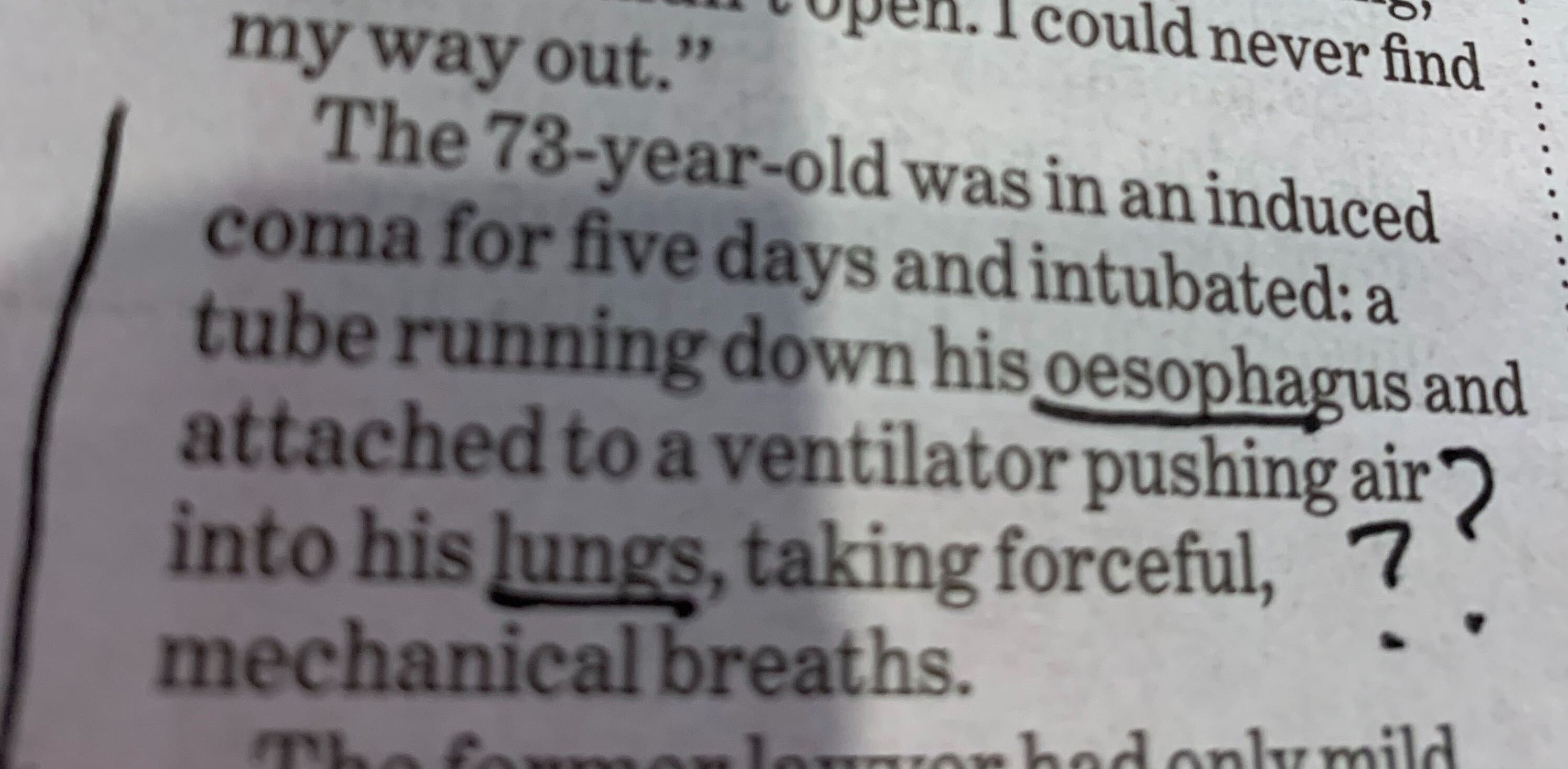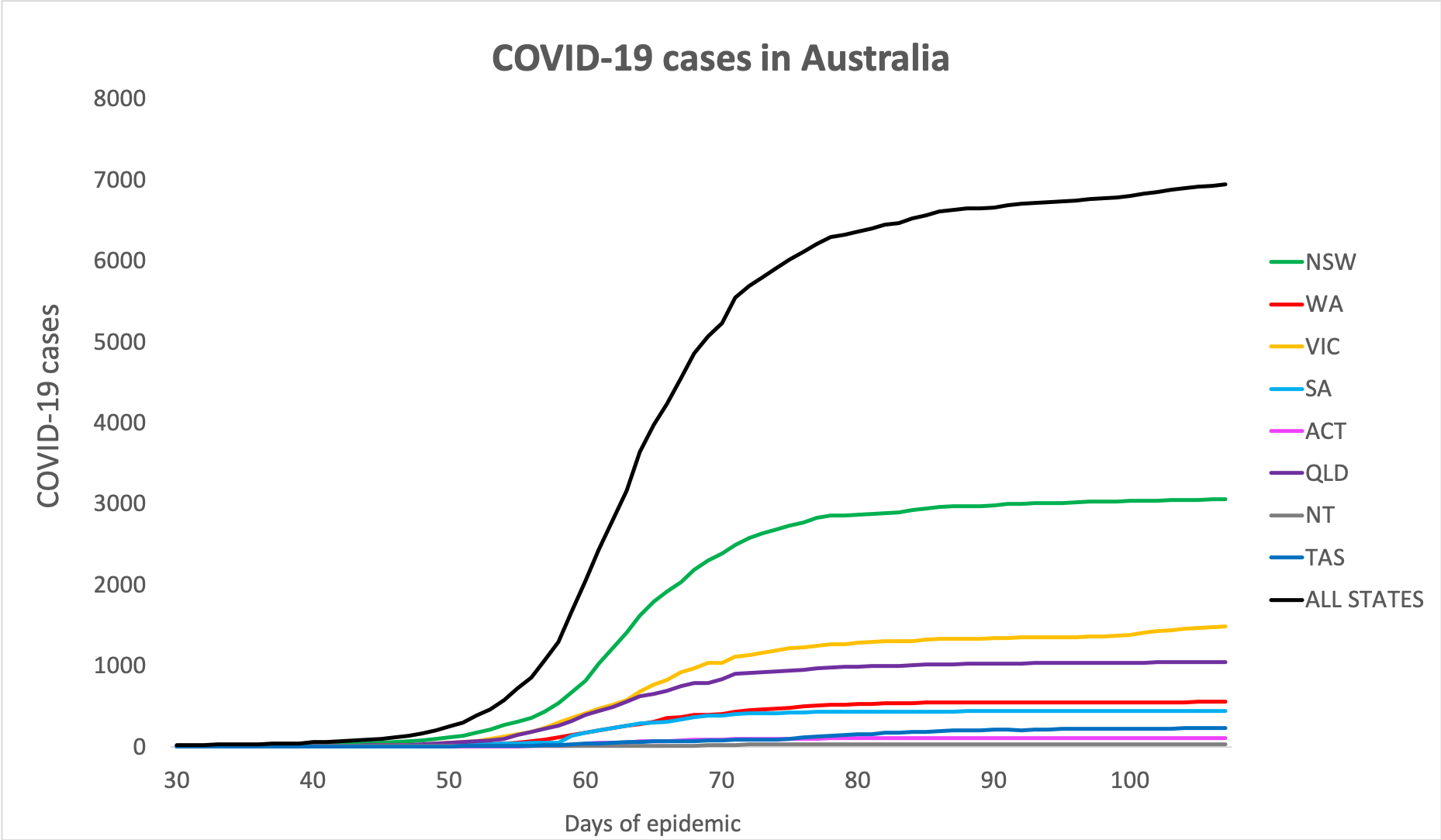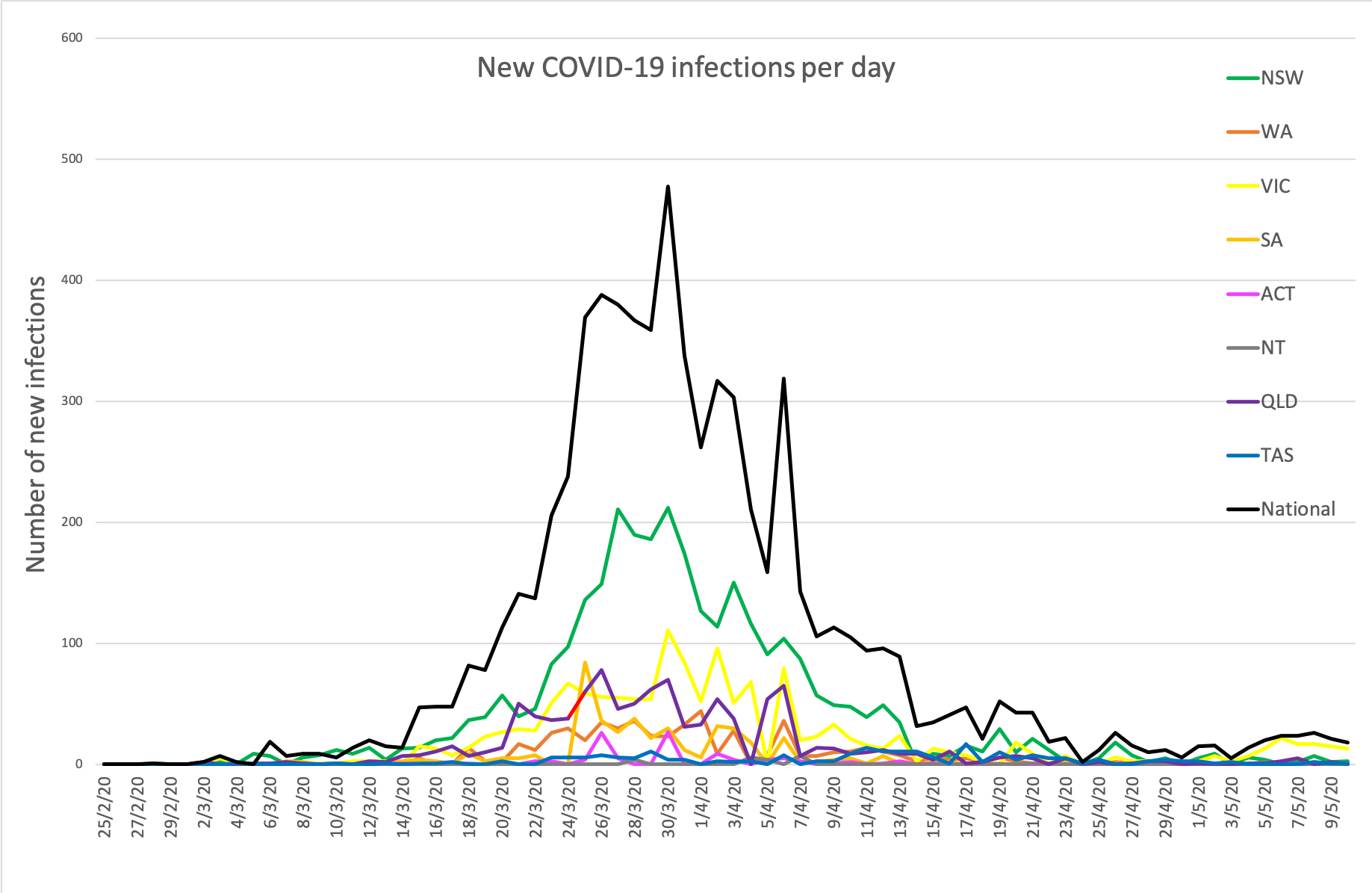Around one in six COVID-19 patients discharged from hospital with negative RT-PCR tests for SARS-CoV-2 had a later positive swab despite remaining in strict quarantine.
Thanks for joining us on The Medical Republic‘s live COVID-19 blog.
And thank you to our sponsor and supporter for funding this project with an independent grant, Boehringer Ingelheim
The latest
- RACGP, RDAA and ACCRM voice concerns for healthcare workers’ mental health.
- As many as one in six COVID-19 patients could retest positive after discharge, research suggests.
- High levels of anxiety in pregnant women during COVID-19 pandemic, study finds.
4.30pm, 11 May
- And now for something a little lighter … a mind-boggling word-salad of lunacy about COVID-19 testing uttered by the president of the United States, and hilariously lip-synched to by comedian Sarah Cooper.
How to testing pic.twitter.com/y9iwLK0N12
— Sarah Cooper (@sarahcpr) May 9, 2020
- The mental health of Australians – and particularly healthcare workers – is front of mind for many medical organisations at the moment.
Last week, the federal government announced a $3 million investment into an app developed by the Black Dog Institute to connect health care workers with a specialist mental health support system. The app – called TEN – The Essential Network – provides tools for self-assessment, self-management and treatment options for stress, anxiety and depression.
The RACGP, Rural Doctors’ Association of Australia and the Australian College of Rural and Remote Medicine have this week all stressed the importance of healthcare workers getting support for mental health during what is an incredibly challenging time.
Associate Professor Ayman Shenouda – RACGP Vice President and Chair of RACGP Rural – said the COVID-19 pandemic has placed extra strain on the healthcare community, and research from around the world suggested that those on the frontline of the pandemic were experiencing significantly greater psychological distress.
“If any healthcare worker has concerns about their mental health please reach out and use this mental health support unit right away,” Professor Shenouda said in a statement. “This is something the RACGP has been fighting strongly for and it will make a real difference.”
- Around one in six COVID-19 patients discharged from hospital with negative RT-PCR tests for SARS-CoV-2 had a later positive swab despite remaining in strict quarantine.
A non-peer-reviewed study published on the preprint server MedRxiv followed 414 COVID-19 patients at a hospital in Shenzen, China, who were discharged after having two consecutive negative RT-PCR tests but had to remain in a designated quarantine facility for two weeks isolation before being sent home.
During their post-discharge quarantine, they were tested every three to five days for signs of the virus using both nasopharyngeal and anal swabs, then weekly after being sent home.
The study found that 69 patients (16.7%) retested positive after their discharge, and two showed symptoms consistent with COVID-19 infection.
They authors stressed that the recurrence of positive tests did not necessarily equate with infectivity, because the test was for viral RNA, not live virus.
Most of those who retested positive had had mild to moderate disease at first admission to hospital, were generally younger, and had slightly lower BMI. They were also more likely to present with cough and sputum production, headache and muscle ache, and they showed some different laboratory parameters such as lymphocyte count, lactate dehydrogenase and infection-related biomarkers.
A small number of patients even retested positive for a third time after discharge, “making it likely that the re-emergence of PCR positivity is due to cycling between dormancy and reactivation of SARS-CoV-2, and/or the resurfacing of the virus from the lower tract to the upper tract of the respiratory system,” the authors wrote.
- Pregnant women may be opting for elective caesarean delivery because of anxiety about COVID-19, new research suggests.
A study of 100 pregnant women in Italy, published in the American Journal of Obstetrics & Gynecology, surveyed their psychological health during the second half of March this year, when the pandemic was raging through Italy.
These surveys revealed that more than half the respondents felt the pandemic had had a severe psychological impact, particularly with respect to their anxiety about possible mother-to-child transmission of the infection. Women in their first trimester were more severely affected than those in later pregnancy.
The study also saw 18 deliveries in 48 women who were enrolled in their third trimester, three of which were planned caesarean deliveries at the mother’s request, representing a rate of 16.7%. The authors noted that this rate was significantly higher than the usual rate of planned caesareans requested by the mother, which is around 5%-10% according to the literature.
“Notably, anxiety for fetal injury or fetal death, and emotional aspects, are two of main reasons for planned cesarean delivery on maternal request,” they wrote.
The authors also commented on the high rate of anxiety seen in women in their first trimester, and suggested that it was important to develop interventions to improve mental health and resilience in pregnant women during the pandemic.
- One of the big questions with COVID-19 is how to predict which patients are likely to develop more severe disease.
In the latest AMA Fact File on COVID-19, thoracic physician Dr Zappala summarises the latest findings, which point to contributions both from host factors such as age and gender, comorbidities, disease characteristics and laboratory parameters.
For example, evidence suggests that men have a significantly greater likelihood of developing severe disease than women – current estimates range from 1.7-3.8 times higher. Interestingly, SARS-CoV-1 and MERS both also showed the same impact of gender, but what’s still not clear is whether there is some underlying biological mechanism such as hormonal influences, or whether this is a function of what Zappala calls “bad lifestyle influences.”
Supporting this is evidence from a preprint study, recently published on MedRxiv, of the electronic health records of 442 patients treated in the US for COVID-19, which found that men were twice as likely as women to develop severe disease requiring hospitalisation, intensive care or intubation.
Age is also emerging as a significant risk factor for severe COVID-19. According to the AMA Fact File, simply being aged over 65 years means you have six-fold higher odds of developing severe COVID-19. The US study calculated a 49% increase in risk for every decade of age.
There is also growing understanding of the impact of comorbidities – in particular hypertension, diabetes, obesity, cancer and COPD – and new data is coming out constantly trying to pin down the degree of contribution each of these comorbidities make to COVID-19 severity.
- With the healthcare system facing so many new and unique challenges from the COVID-19 pandemic, not-for-profit Therapeutic Guidelines is offering complimentary access to its entire online collection of guidelines – including via the eTG complete mobile app – to healthcare professionals. For more information, visit their website.
9.15am, 11 May
- TMR‘s staff are acutely aware that journalists in glass houses shouldn’t throw stones, particularly in this pandemic when medical and science reporters are running fast and hot and sometimes errors sneak past even the most astute and experienced writers.
But we couldn’t help but share this one:
- As China and Germany both report resurgence of COVID-19 cases, it’s going to be an anxious week for Australian state and federal health authorities as they watch Australia’s infection rates after the loosening of restrictions.
Here are today’s confirmed COVID-19 infection figures, to 9pm yesterday, from around Australia:
National – 6941, with 97 deaths and 6163 recovered
ACT – 107
NSW – 3053
NT – 29
QLD – 1045
SA – 439
TAS – 227
VIC – 1489
WA – 552


Disclaimer: The content on the Medical Republic COVID-19 blog is independently created by Medical Republic without input from Boehringer Ingelheim Pty Ltd. The views, information, or opinions expressed on the Medical Republic COVID-19 blog are Medical Republic’s own and do not necessarily represent those of Boehringer Ingelheim Pty Ltd. Boehringer Ingelheim Pty Ltd is not responsible for and does not verify the accuracy of any content on the Medical Republic COVID-19 blog.


